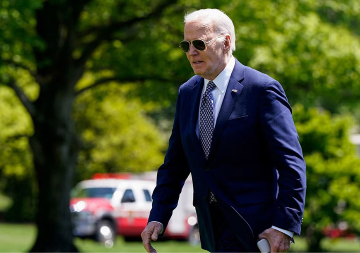At the second Africa-India Forum Summit held in Ethiopia's capital Addis Ababa on May 24-25, notable points for cooperation were established with hopes of further strengthening the longstanding relationship between India and African nations.
The two documents that emerged-- the Addis Ababa Declaration and the Africa-India Framework for Enhanced Cooperation-- touched upon a variety of issues, ranging from NATO's actions in Libya, climate change, trade development, piracy, terrorism, nuclear disarmament, and UN reforms.
The summit capped the African tour of Indian Prime Minister Manmohan Singh. During his visit, Dr Singh met his Ethiopian counterpart PM Meles Zenawi along with other participants (working under the Banjul format) such as the Chairperson of the AU, Mr. Teodoro Obiang Nguema Mbasogo (President of Equatorial Guinea); the Chairperson of the African Union Commission Dr. Jean Ping; the Deputy Chairperson of the AUC, Mr. Erastus Mwencha; Chair of the Heads of State and Government Orientation Committee; Chair of the Regional Economic Communities and African Union Commissioner.
India and African nations have shared a common history of colonialism and development and have linkages for nearly two centuries. With the first indentured labourers from the subcontinent arriving in Mauritius in 1834 to the great number of Indian migrants who settled in East Africa permanently, the cultural assimilation of the two regions has been rooted in history.
India's post-independence Africa policy was anchored by the discourse of independence and freedom from colonial rule and the Non-Aligned Movement. Over the past 60 years, Africa's relevance in India's foreign policy has moved from the periphery to centre-stage and has been complemented with a focus on capacity building, human resource development, infrastructural growth, as well as trade, investment and energy security in a spirit of South-South partnership.
Some of the key points of the Addis Ababa Declaration and conference were as follows:
1) India supports African Union in disapproving of NATO's airstrikes in Libya
a. In a bilateral meeting with Libya's Foreign Minister Mr Abdal al Latti al Obedi, Indian External Affairs Minister S.M. Krishna expressed regret over the NATO-led airstrikes that had changed the nature of external support and urged an immediate ceasefire in Libya in order to end the violence and attacks on civilians.
2) UN reform: bid to reflect contemporary realities
a. African nations and India have noted each other's aspirations for a role in an expanded and reformed Security Council in a "transparent, efficient, and effective manner" and that is reflective of the current global landscape. The expansion of the UN Security Council, in permanent and non-permanent categories of membership, with increased participation of developing counties in both categories, is central to the process of reform and for enhancing the credibility of the United Nations.
1
b. African nations are to work closely with India during its tenure as non-permanent member in Security Council in 2011-2012.
3) Economic Front
a. In a meet between Trade Ministers from African Countries and India, talks were built around the idea of deeper economic engagement with initiatives such as the Duty Free Tariff Preference Scheme of India, forming an India-Africa Business Council, cluster development, and the identification of priority sectors of partnership.
2
b. To boost agriculture cooperation, PM Singh announced the formation of an India-Africa food processing cluster as well as textile cluster to contribute to value addition and creation of regional and export markets.
c. Furthermore, the Summit discussed measures to support the African economic programmes such as Programme for Infrastructure Development in Africa (PIDA), New Partnership for Africa's Development (NEPAD), and Comprehensive Africa Agriculture Development Programme (CAAPD).
d. $5 billion in lines of credit for 3 years to help Africa with its development initiatives.
e. $700 million to establish new institutions and training programmes such as the India-Africa University for Life & Earth Sciences and an India-Africa Institute of Agriculture and Rural Development.
f. $300 million to develop a new Ethiopia-Djibouti Railway Line.
g. Ethiopia has offered 'virgin fertile land' to India so that Indian companies can invest in the land and transfer technology and skills, alongside employing the local labour and enhancing Ethiopia's exports.
4) Human Resource Development and Capacity Building
a. Establishment of an India-Africa Virtual University initiated by MEA, Ministry of HRD, and to be mandated under IGNOU (Indira Gandhi National Open University), to be headquartered in Ethiopia or Kenya, and with an initial budget of Rs. 150 crore ($3.5 million). 10,000 scholarships to be granted under proposed university.
b. Number of scholarships for African students has been raised to 22,000 for next three years.
c. Establishments of institutes of English language training, IT, entrepreneurship development and vocational training budgeted at $2 million for African Union Mission in Somalia.
Through a strong portfolio of initiatives and proposals, the meet created a framework of widened engagement in political and economic cooperation. The next India-Africa Forum Summit is scheduled for 2014 in New Delhi.
Anjana Varma is Research Assistant, ORF
1 Addis Ababa Declaration, May 25, 2011 -
http://meaindia.nic.in/mystart.php?id=190017663
2 Addis Ababa Declaration, May 25, 2011 -
http://meaindia.nic.in/mystart.php?id=190017663
The views expressed above belong to the author(s). ORF research and analyses now available on Telegram! Click here to access our curated content — blogs, longforms and interviews.




 PREV
PREV

